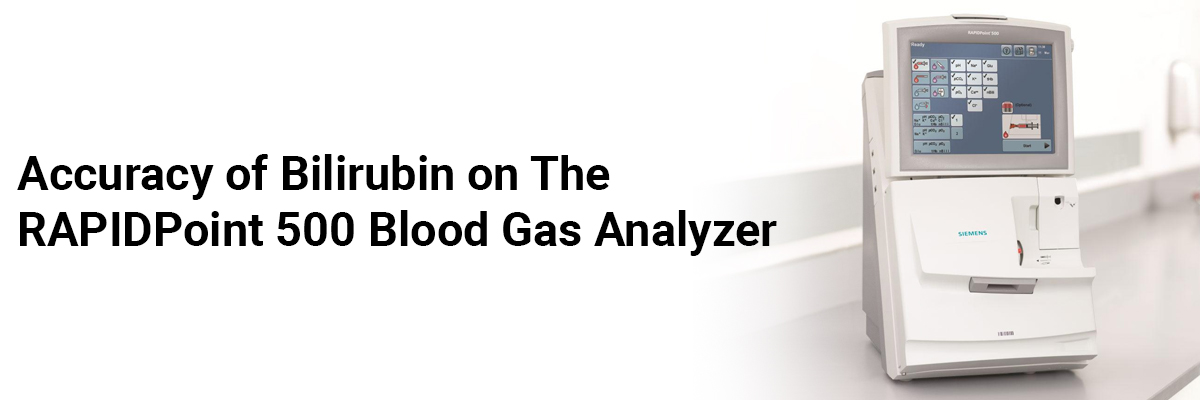
 IJCP Editorial Team
IJCP Editorial Team
Accuracy of bilirubin on the RAPIDPoint 500 blood gas analyzer
Blood gas analyzers are commonly available in neonatal intensive care units to measure bilirubin in whole blood. However, their accuracy of measurements is not well established.
A recent study determined the accuracy of whole blood bilirubin on the Siemens RAPIDPoint 500 blood gas analyzer with reference to formal laboratory total serum bilirubin on the Ortho Vitros 5600.
It compared the bilirubin results from the blood gas analyzers with the chemistry analyzers by data mining results acquired as part of routine patient care. It included the results if the patient underwent bilirubin testing by blood gas analyzer and formal total serum bilirubin (TSB), with both samples being collected within 20 min.
The study included 449 eligible sample pairs and generated a Bland-Altman plot to identify systematic differences between the methods. It observed a mean bias of −11 μmol/L with 95% limits from −60 μmol/L to 38 μmol/L. It even found some blood gas bilirubin results up to 70 μmol/L lower than formal TSB measurements around the clinically significant concentration range of 200 to 300 μmol/L.
This study warns clinicians about the potential differences between the results from their blood gas analyzers compared to formal TSB results. Sole reliance on blood gas bilirubin results may underestimate TSB and cause under-recognition of neonatal jaundice that meets treatment thresholds. Clinicians must thus seek formal measurement of TSB to inform decisions regarding the treatment of neonatal jaundice.
Source: Mukerji S, Popat H, Chung JZY. Accuracy of bilirubin on the Siemens RAPIDPoint 500 blood gas analyzer: A data mining study. Journal of Pediatrics and Child Health. 2022;58(6):1013-1015. https://doi.org/10.1111/jpc.15890

IJCP Editorial Team
Comprising seasoned professionals and experts from the medical field, the IJCP editorial team is dedicated to delivering timely and accurate content and thriving to provide attention-grabbing information for the readers. What sets them apart are their diverse expertise, spanning academia, research, and clinical practice, and their dedication to upholding the highest standards of quality and integrity. With a wealth of experience and a commitment to excellence, the IJCP editorial team strives to provide valuable perspectives, the latest trends, and in-depth analyses across various medical domains, all in a way that keeps you interested and engaged.





















Please login to comment on this article